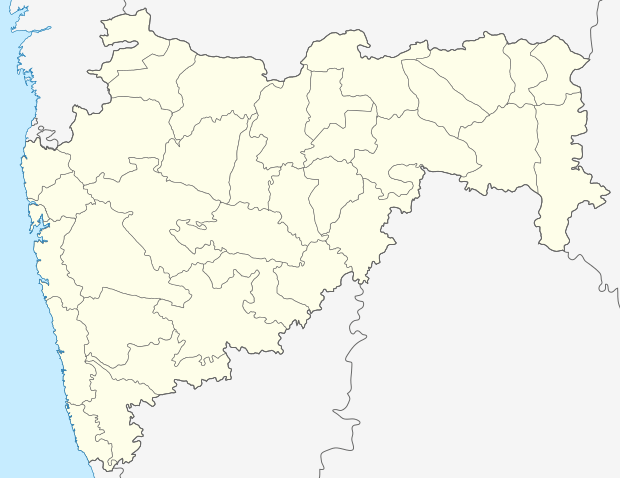Kalamb
| Kalamb | |
|---|---|
| village | |
|
Shree Chintamani of Kalamb | |
 Kalamb  Kalamb Location in Maharashtra, India | |
| Coordinates: 20°17′N 78°33′E / 20.28°N 78.55°ECoordinates: 20°17′N 78°33′E / 20.28°N 78.55°E | |
| Country |
|
| State | Maharashtra |
| District | Yavatmal |
| Languages | |
| • Official | Marathi |
| Time zone | IST (UTC+5:30) |
| PIN | 445401 |
| Telephone code | 07201 |
| Vehicle registration | MH-29 |
| Lok Sabha constituency | Yavatmal-Washim |
| Vidhan Sabha constituency | Kalamb |
Kalamb (Marathi: कळंब) - (about 78.55 E, 20.28 N) is a village in Yavatmal district of Maharashtra state in India. It is famous today for its temple devoted to the Hindu god Ganesha. The temple is known as Shree Chintamani Temple, based on another name for Ganesh that emphasizes the belief that praying to him can remove worries ('Chinta' means worry in Sanskrit and in local Marathi language). It is one of the 21 Kshetras of Ganesh throughout India. An annual fair of Shree Chintamani is held here.
It is not widely known that this otherwise unimportant village today was surprisingly an important revenue assessment center under the Mughal Empire in early seventeenth century as the capital of a Sarkar (sub-unit of a Mughal Subah) of the same name, earlier spelled as 'Kalam'.[1]
Today, Kalamb is administrative center of a Taluka (sub-district) also called Kalamb. The Taluka has a population of about 96 thousand (2001 Census) and has over 140 villages. It is part of Vidarbha region. Vidarbha, was called Berar by the British and by the Mughals earlier. It was part of Central Provinces and Berar in British India between 1903 and 1947, and was part of Nizam of Hyderabad's territory until 1903.
Transport
By bus
Kalamb is on Yavatmal-Nagpur highway. You will find plenty of buses throughout the day and late night from Nagpur & Yavatmal. There are also buses plying from Amravati, Akola.
By rail
The nearest railway station is Dhamangaon which is on Mumbai Nagpur route.
References
- ↑ Schwartzberg, Joseph E. (1978). The Historic Atlas of South Asia. University of Chicago Press. p. 45., Plate VI.A.2
